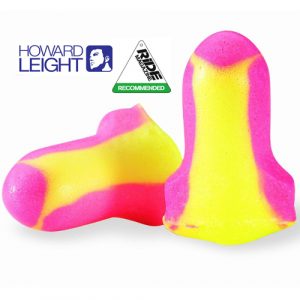Psoriasis affects 2% of people in the UK affected by psoriasis and 125-million sufferers worldwide, let’s take a closer look at what psoriasis is and how psoriasis can be eased and treated at home.
What Is Psoriasis and Why Does It Occur?
Psoriasis is a non-contagious skin condition that causes flaky, red, crusty patches of skin covered with silvery scales. It’s an autoimmune skin condition, the severity of which varies greatly from one person to the next. These patches of psoriasis can be sore and itchy. For some people psoriasis severely affects their daily life, while for others it’s a minor irritation. Psoriasis patches typically appear on the knees, elbows, lower back, and scalp, but they can actually appear anywhere on your body. Fingernails and toenails can also be affected by psoriasis.
Unfortunately, psoriasis is a chronic (long-lasting) disease, however there will be periods where you have only mild symptoms or no symptoms at all, but these could be followed by periods of more severe symptoms.
So Why Does It Occur?
Basically, psoriasis occurs in people who have an increased production of skin cells. The immune system over-responds, resulting in the B-skin-cells and T-skin-cells reproducing much quicker than normal, which leaves a build-up of skin layers.
Normally, skin cells are produced and replaced every 3 to 4 weeks, but this process only takes between 3 and 7 days in psoriasis. The patches associated with psoriasis are created by the resulting build-up of skin cells.
Your body’s defence against infections and disease is controlled by the immune system, but in people with psoriasis the immune system attacks healthy skin cells in error. Research shows that psoriasis can run in families; however, the exact role that genetics plays is uncertain.
It is known, though, that psoriasis symptoms in many people either begin or worsen after a certain event, commonly known as a trigger. This trigger may include a throat infection using certain medications, or an injury to your skin. Perhaps the good news is that psoriasis cannot be spread from person to person because it’s not contagious.
There’s still no cure for psoriasis, but there are both topical and internal treatments that may help the immune system, many of which can be carried out in the privacy of your own home.
At-Home Treatments For Psoriasis
No. 1: Corticosteroids
There are many products in the corticosteroid family, and hydrocortisone cream is just one of them. When applied to the skin, Hydrocortisone cream reduces redness, swelling, and itching, and is ideal for treating mild to moderate cases of psoriasis.
No. 2: Vitamin D
The body produces vitamin D when it’s exposed to sunlight, and when applied directly to the skin via prescription medication or taken in supplemental form, vitamin D can help to slow skin growth. However, too much vitamin D can be unsafe, so please check with your general practitioner for safe levels. Similarly if you don’t have enough you wish to check your own vitamin D levels, please click here for a Vitamin D Test Kit.
No. 3: Light Therapy
Also known as phototherapy, light therapy uses UV (ultraviolet) light to decrease the skin’s immune response. For people who don’t like injections, chemicals, or topical creams and ointments, light therapy can be a great natural therapy. While this type of therapy is traditionally carried out under a GPs supervision, there are now personal handheld phototherapy devices that can be used in the privacy of your own home.
No. 4: Salicylic Acid
You may have noted salicylic acid as an ingredient in your personal acne or skincare products. Salicylic acid is a BHA (beta hydroxy acid) which effectively works as a peeling agent, ultimately allowing other treatments to work more efficiently.
No. 5: Retinoids
When applied as a gel or cream, retinoid (vitamin A) helps speed up the shedding of skin cells. The result is that the scale and thickness of psoriasis is reduced. However, not everyone can use retinoids because they come with specific side-effects, such as skin sensitivity to the sun. Before applying retinoid to your skin, please consult your dermatologist or GP.
No. 6: Turmeric
Also known as curcumin, turmeric is a spice often found in Chinese medicines. It’s effectively used to reduce inflammation and relieve typical symptoms of psoriasis. Also containing antimicrobials, antioxidants, and anticarcinogenic properties, turmeric can be applied topically or taken orally.
No. 7: Coal Tar
Derived from coal, coal tar has been used for more than 100 years to treat the symptoms of psoriasis. Coal tar is a thick oil which is applied topically, helping to shed the scales and top layer of the skin to uncover the smooth skin underneath. It is often sold as soap. Zoom Health has a wide range of handmade soaps that can be helpful in treating psoriasis.
No. 8: Steroids
While steroids are often used to treat psoriasis, the long-time use of steroids is not recommended; however, they can be effective in reducing itchiness and inflammation caused by mild to moderate psoriasis.
No. 9: Omega 3
The irritation and inflammation of psoriasis can be reduced by taking Omega 3 oil supplements, which are derived from oils, fish, vegetables, and nuts. Whether consumed from food sources or taken orally as supplements, Omega 3 helps to lubricate and soothe the cells.
No. 10: Aloe
Research shows that Aloe extract has been used since ancient times to offer a natural remedy for sufferers of psoriasis. Aloe extract is the gel of the leaves from the Aloe plant. It’s a natural remedy that’s effective in soothing and nourishing the skin and preventing it from drying out. Also available as Aloe Vera tablets.
No. 11: Healthy Lifestyle Choices
Studies have found that lifestyle improvements can reduce the effects of psoriasis. Smoking, stress, and alcohol consumption can worsen symptoms; however, by reducing stimulants, increasing exercise, eating a balanced diet, and taking time to breathe and relax, not only will you feel better in yourself, you’ll also be helping reduce the severity of your psoriasis.
No. 12: Warm Baths
Having a warm Epsom salts or oatmeal bath can work wonders in reducing itching and soothing the skin. Make sure you moisturise your skin with a non-irritating cream after your bath.
Lifestyle Changes to Supplement Psoriasis Treatment
In addition to medical treatments, making certain lifestyle changes may help manage psoriasis symptoms. Pay attention to your diet and try to identify any trigger foods that seem to worsen your flare-ups. Common culprits include red meat, dairy, and processed snacks. Instead, prioritise a balanced diet rich in fresh fruits, vegetables, and whole grains to support overall skin health.
Stress is another factor that can exacerbate psoriasis. Engage in stress-reducing activities like yoga, meditation, or deep breathing exercises to help keep flare-ups at bay. Regular exercise can also help manage stress and improve your mood, but be sure to choose low-impact activities that won’t irritate your skin.
Remember, while lifestyle changes can be beneficial, they should not replace your prescribed psoriasis treatments. Always consult with your doctor before making significant changes to your diet or starting a new exercise routine to ensure they align with your overall treatment plan.
You’re Not Alone
Psoriasis is an uncomfortable skin condition that affects around 4% of the world’s population, so you’re certainly not alone. Please don’t suffer in silence if you’re feeling anxious or depressed about your skin condition. So many others have been right where you are today, and many of these people have found ways to improve the quality of their life. If you have any concerns, don’t hesitate to speak to your local GP, or find out more by visiting the Psoriasis and Psoriatic Arthritis Alliance.
Photo “Hand Cream” by Anthony Cunningham for Zoom Health
Zoom Health is a leading UK supplier of Home Health Tests and Earplugs





